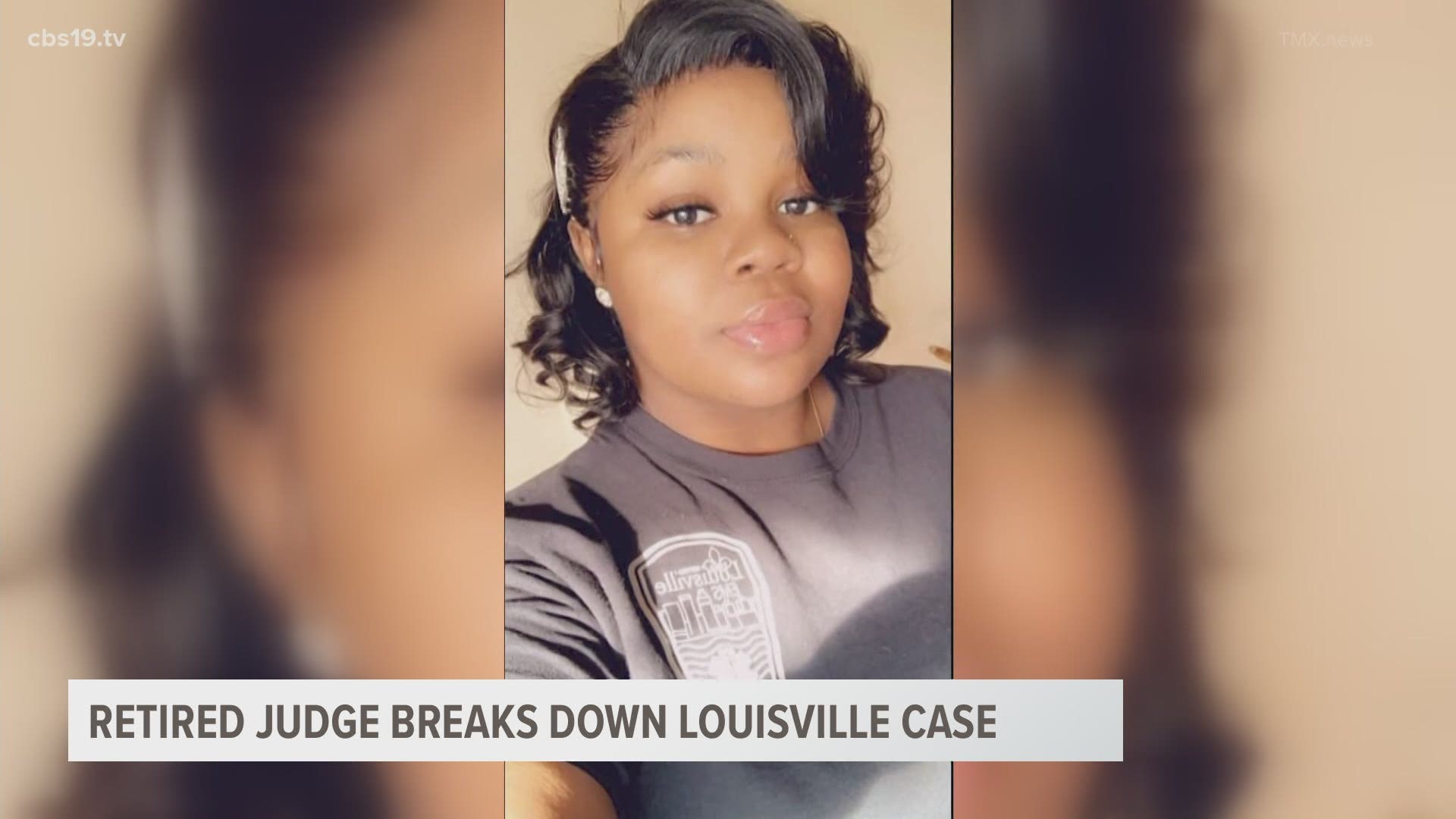TYLER, Texas — Wednesday's announcement from a Kentucky grand jury has people all over the country trying to understand why three police officers were not charged in the death of Breonna Taylor.
"Can you imagine if you're in your home, and all of a sudden someone's breaking in, if there is a no-knock, and they're breaking into your home and you're afraid for your life, and you're defending your life, but it ends up being police officers doing their duty?" Cynthia Stevens Kent, former 114th District Court Judge, said.
Kent served as a District Court Judge in Smith County for more than 20 years and is very familiar with grand jury indictments.
"The grand jury process is not to say someone is guilty or not guilty," Kent said. "It's to say there is sufficient probable cause to bring formal charges. Normally, your district attorney is going to be the one that handles the case. In this case, because of the nature of the controversy, certainly the racial issues that were involved with three white officers and Breonna being killed in connection with this, Kentucky had their attorney general. He's in his first term. He was appointed as a special prosecutor to handle this. He presents the evidence to the grand jury. Now, that prosecutor can make a recommendation whether or not they think the grand jury should indict, what charges they should indict on, or they may not make a recommendation. But the bottom line is it comes down to what that grand jury decides in Kentucky."
While laws in Texas are not the same as they are in Kentucky, Kent says she has followed Taylor's case, especially the charges brought against former police officer Brett Hankison on wanton endangerment.
"We don't have that specific language in Texas," Kent said. "But in Kentucky, that's what's called a Class D felony and that's where you've engaged in conduct that has recklessly endangered the life or potential serious bodily injury to individuals because of your disregard of conduct. And in this case, this officer fired 10 shots, several of them went into a neighboring home. And in that home, there was a pregnant woman, her husband and a 5-year-old child."
Wednesday, Kentucky Attorney General, Daniel Cameron, who served as the special prosecutor in this case, said that the officers were serving a regular search warrant and did announce who they were.
"There were witnesses that said they did not announce," Kent said. "There was one witness that testified they did announce that they were coming in. So that was a controversy that the grand jury listened to that information."
RELATED: LMPD sergeant says they did 'legal, moral and ethical thing' the night of Breonna Taylor's death
Now the FBI is investigating the case and is specifically looking at whether or not the search warrant was obtained by false information which could lead to additional charges brought against the officers.
"There are many cases, they had cases out in California, cases in Texas, where perhaps in the state decides not to charge someone or someone's actually found not guilty," Kent said. "That does not prevent the federal government from pursuing whether or not there was a civil rights violation."
The former judge says the main component of the case, is Taylor's boyfriend, Kenneth Walker.
"The assumption is that the grand jury heard evidence of Miss Taylor's boyfriend shooting first, the officers returning fire," Kent said. "So that being a self defense, and if there's a self defense, that prevents them from being charged with murder or manslaughter because they're not guilty if they have a self defense claim, and obviously that's what the grand jury determined. The one officer that was indicted was because under their provisions, if you are shooting and you are not aware and attentive to where your shots are going, they're not going toward the target, but in this case, they went into someone else's house. That's when they charged with one endangerment and the self defense claim did not protect that officer from that indictment. So that's why there was no charge for manslaughter, because they couldn't have charged them for murder or manslaughter if they thought they felt it was self defense."

